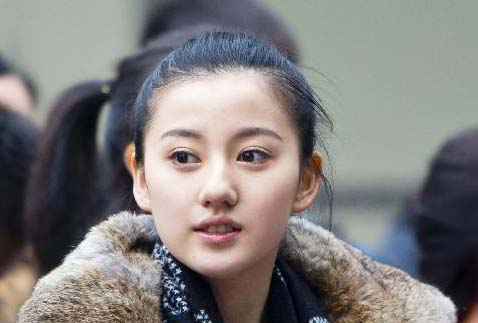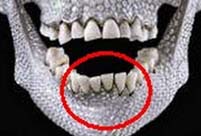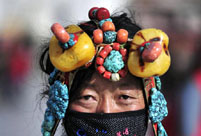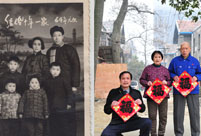BEIJING, Feb. 21 -- The Communist Party of China (CPC) has picked up its fight against corruption after the Lunar New Year by announcing probes of another two vice-ministerial-level officials.
On Tuesday evening and Wednesday morning, the Central Commission for Discipline and Inspection (CCDI), the CPC's anti-graft body, publicized on its website that Ji Wenlin, vice governor of south China's Hainan Province, and Zhu Zuoli, senior political advisor of northwestern Shaanxi Province, were under investigation for "serious violations of discipline and laws."
The two officials were removed from their posts on Thursday.
The bombshells pick up from the CPC's tough measures against corruption at the end of last year, when barely a week passed without news of high-level officials being probed. In December alone, investigations were opened into five ministerial and provincial-level officials.
Li Chongxi, chairman of southwest China's Sichuan Provincial Committee of the Chinese People's Political Consultative Conference, was last among a series of "tigers" being investigated last year. He was removed from his post for suspected violations of discipline and laws.
Ji and Zhu put the number of high-level officials being probed at 20 since the 18th CPC National Congress witnessed a power transition among the CPC Central Committee.
"It's some sort of extension of last year's anti-graft efforts," said Dai Yanjun, a professor with the Party School of the CPC Central Committee. The fact that more than a month passed without any senior officials being brought down did not mean a suspension of the campaign, Dai added.
The lull may simply have been because authorities chose to hold off from announcing the news until after the Lunar New Year holiday, according to the professor.
Anti-graft work has been strengthened comprehensively since the congress, and it has been endorsed by the public. It has been impossible to overlook last year's introduction of a number of key rules and regulations, including measures to curb extravagance during festivals, a five-year (2013-2017) plan on building a system to punish and prevent corruption, and the declaration that the efforts will target "tigers" as well as "flies," meaning both high-ranking and grassroots officials.
Dai said the continuation of anti-graft work has also been reflected in further investigation of graft cases. People can see from public information that there seem to be links between the officials condemned last year and those being brought into the spotlight now.
For example, public records show that Ji has held a post in the CPC Sichuan Provincial Committee once chaired by Li Chongxi.
"Undoubtedly, more corrupt officials will be exposed as long as the anti-graft efforts investigate these networks," said Dai.
Prof. Xie Chuntao with the Party School of the CPC Central Committee agreed that Ji and Zhu's downfall is not "a reboot of the CPC's anti-graft measures."
It is very likely that the authorities pinned down their wrongdoing before the holiday, said Xie, adding that the CPC's anti-graft plans were laid out at the third plenary session of the CCDI in January.
According to a communique issued after the session, the Party will carry on its anti-graft battle this year through reforming the supervision system and toughening punishment.
It will also sharpen the efficiency of CCDI inspections of provincial governments, state-owned enterprises and public institutions to discover malpractice and harmful work styles.
China's anti-graft momentum has been strong since the 18th CPC National Congress, and it will keep on like this, said Xie.
 Most gorgeous female celebs in Chi-pao
Most gorgeous female celebs in Chi-pao Second round of test kicks off at Beijing Film Academy
Second round of test kicks off at Beijing Film Academy Ancient Qiang people had vertically grown teeth
Ancient Qiang people had vertically grown teeth Top 10 Chinese youth’s favorite seaside destinations
Top 10 Chinese youth’s favorite seaside destinations Traditional Tibetan clothing tailors
Traditional Tibetan clothing tailors In photos: Unveiling Taishan station
In photos: Unveiling Taishan station Beautiful moments of family reunion
Beautiful moments of family reunion 10 Valentine's Day ideas for couples
10 Valentine's Day ideas for couples Let's get married today!
Let's get married today! Chinese warplanes C919 to appear at Singapore Airshow 2014
Chinese warplanes C919 to appear at Singapore Airshow 2014 Ruins of Shang Dynasty's structure unearthed in Shaanxi
Ruins of Shang Dynasty's structure unearthed in Shaanxi  Intercity high speed train in operation
Intercity high speed train in operation Severe coldness freezes large parts of China
Severe coldness freezes large parts of China  Beautiful moments of Sochi
Beautiful moments of Sochi  It's not just performing this year
It's not just performing this yearDay|Week|Month